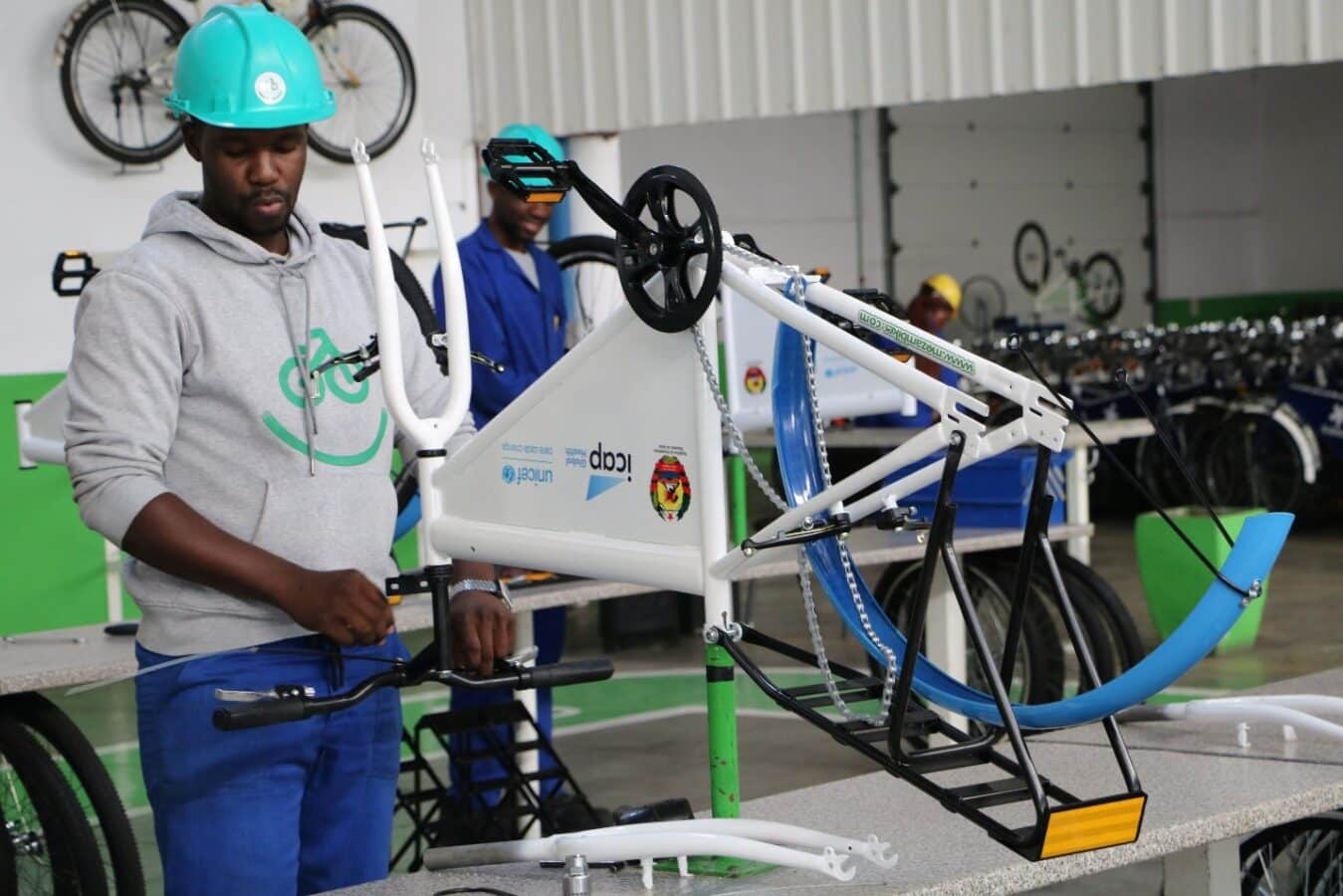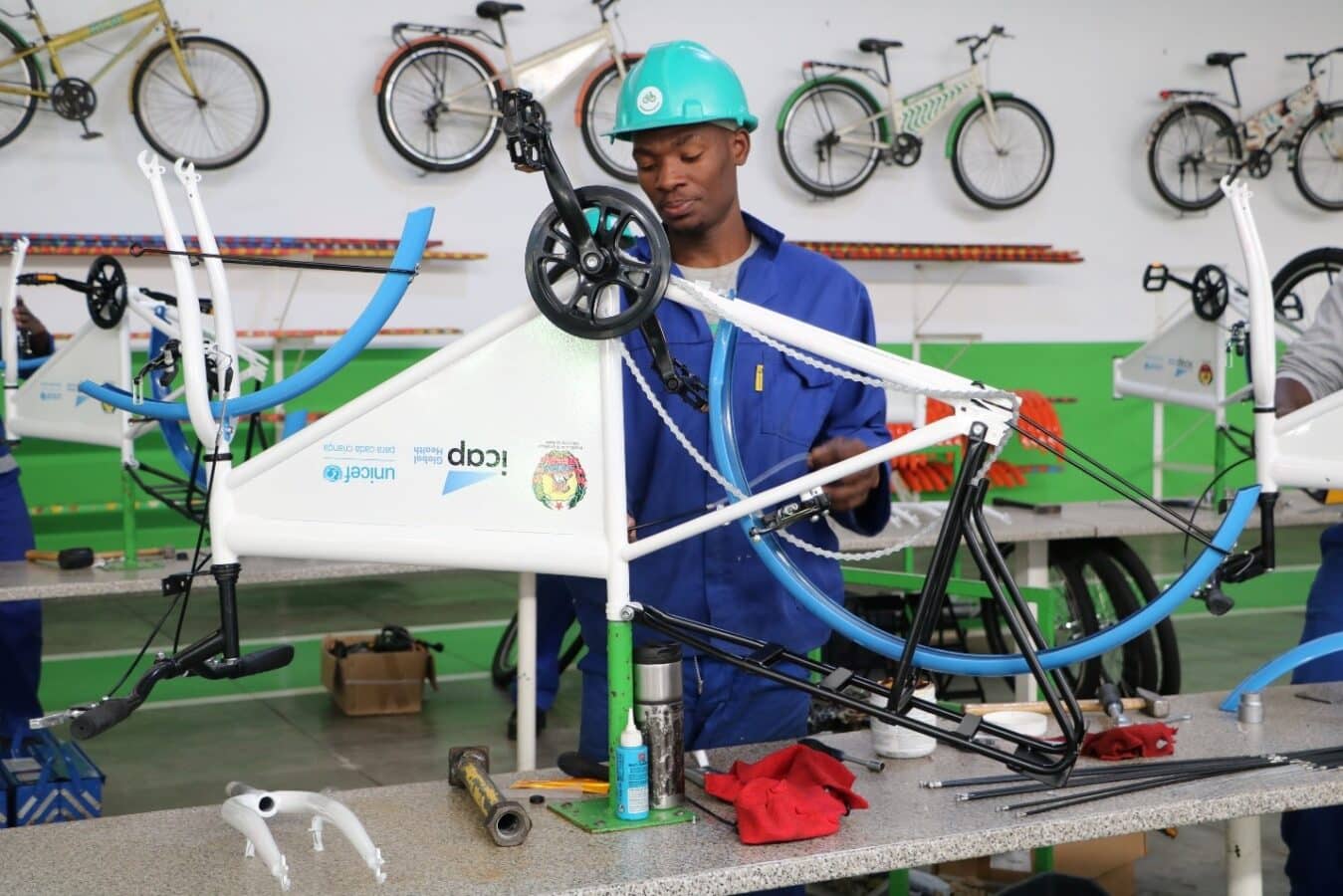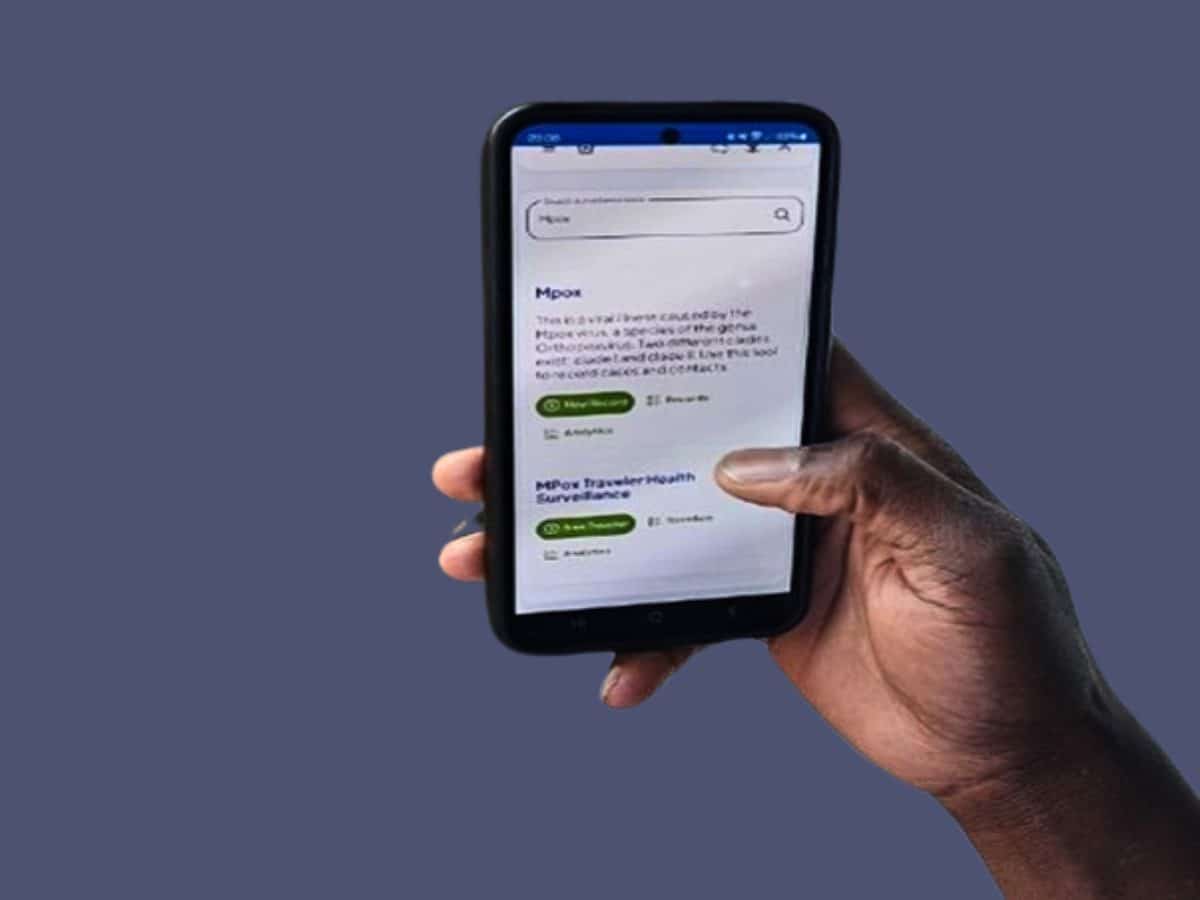For people living with HIV, consistent adherence to medication is critical to keeping one’s viral load suppressed. In rural Mozambique, more than 60 per cent of people find health services out of reach due to high transportation costs and long travel distances. Access to transportation can mean the difference between picking up one’s lifesaving medication or risking a week or more without it.
ICAP in Mozambique, in association with UNICEF, is partnering with the social enterprise Mozambikes to deliver dozens of bicycles to community health workers – ensuring that people living with or at higher risk of acquiring HIV do not need to compromise their health due to lack of transportation.
“If communities cannot reach health services, then we must bring health services to them,” said Eduarda Pimentel De Gusmão, MD, MPH, country director of ICAP in Mozambique.
The Erati district of Nampula province in northern Mozambique now serves as a temporary home for a large number of internally displaced persons (IDPs) due to the ongoing conflict in the neighboring province of Cabo Delgado. For IDPs living with HIV, interruption in treatment is common because routine access to medication is cut off. In addition, IDPs, especially women and girls, run higher risks of sexual- and gender-based violence. These challenges can contribute not only to treatment interruption, but also to increased risk of HIV acquisition. While residing in camps or with host families in entirely foreign locations, both distance and lack of information can deter IDPs from receiving the health care they need.
ICAP’s partnership with Mozambikes takes an innovative approach to addressing this transportation challenge. The initiative has provided 25 community health workers with bicycles to allow them to reach IDPs in distant communities. In 2024, ICAP trained these 25 community health workers – who operate in areas likely to receive refugees from Cabo Delgado – to identify and refer clients with HIV treatment interruption and cases of sexual exploitation abuse. In addition to referring clients to health facilities, community health workers dispense antiretrovirals to clients who have not yet interrupted treatment, as well as screening clients for illnesses such as pneumonia and malaria.
José, a 46-year-old father of seven, works as a community health worker supporting ICAP’s UNICEF-funded project.
“The work I do in the community has a direct impact on the health of the community,” said José. “I travel 12km or more to communities to provide health information to our beneficiaries and help clients on antiretroviral treatment reintegrate into the health system. The bicycle I received helps me reach these communities. When I encounter seriously ill clients, their family members ask for my help and I take them to the hospital on my bicycle.”
“Conditions here are poor, there is a lack of basic services,” added José. “We even use solar panels because there is no energy here. Imagine communities that receive our brothers who are fleeing – at night when they need health services, how can they go to the health unit in this situation? This bike helps us a lot. I hope this project continues to help our community.”

Photo: Mozambikes.
Mozambikes’ bicycles are also helping support a male change agent strategy. In sub-Saharan Africa, male partners generally demonstrate low involvement in preventing vertical transmission of HIV (transmission via pregnancy, childbirth, or breastfeeding). Across Mozambique, ICAP has designed and implemented a gender-transformative male change-agent strategy to strengthen male engagement in reducing vertical transmission of HIV and improve treatment outcomes among adolescent boys, young men, and female partners.
In Nampula, as part of the partnership with UNICEF, ICAP supported 20 male change agents to engage their communities in HIV prevention and linkage to HIV care and treatment, including vertical transmission services. Through group sessions, male change agents are transforming harmful gender norms and providing health education to encourage constructive male engagement to improve HIV outcomes among the target population.
Staff travel long distances in difficult terrain and weather conditions to reach clients to ensure they are connected to health facilities and to provide them with social support for improved health outcomes. To make those journeys easier, ICAP purchased bicycles from Mozambikes to facilitate the work that ICAP’s male change agents are implementing in the community.
“We are thrilled to partner with ICAP on this program by providing bicycles to amplify the impact of critical health services,” said Rui Mesquita, co-founder of Mozambikes. “Mozambikes partners primarily with health, education, rural employment, and agriculture sectors to alleviate poverty throughout the country one bicycle at a time. Designed by and for Mozambicans, Mozambikes is an ideal tool for fostering rural development: they reduce distances in rural areas, increase mobility, and enhance families’ livelihoods by offering durable bicycles that prioritize quality and empower communities economically.”
“In rural areas of the country, people usually live scattered, making it hard for community health workers to reach them,” said Helder Macul, deputy director of ICAP in Mozambique. “Additionally, public transport services are often unavailable in these contexts. Bicycles are a very useful and sustainable means of transport for reaching populations and delivering health services – they not only reduce burden of clients, but those of community workers who want to efficiently do their job.”
Under separate funding from the U.S. President’s Emergency Plan for AIDS Relief (PEPFAR) through the Centers for Disease Control and Prevention, ICAP provided nearly 600 bicycles from Mozambikes to activists, mentor mothers, male champions, and adolescent mentors. Bicycles will help these community workers facilitate home visits aimed at improving antiretroviral treatment adherence and supporting treatment continuation among people living with HIV. The bicycles also allow them to conduct outreach activities to return clients to care. Home visits ensure additional psychosocial support is provided to key populations who have a higher risk of treatment interruption.
The home visits help enhance HIV and viral load literacy as community workers deliver a range of educational materials. These materials include viral load booklets and “Undetectable = Untransmittable” flipcharts, which demonstrate to people living with HIV that if they maintain an undetectable viral load, they cannot sexually transmit the virus to others.
In the end, a simple, elegant, and timeless tool – the bicycle – is making a real difference in Mozambique, increasing the mobility of health care workers so they can access distant neighborhoods and effectively carry out much-needed support to vulnerable populations.
About ICAP
A major global health organization that has been improving public health in countries around the world for two decades, ICAP works to transform the health of populations through innovation, science, and global collaboration. Based at Columbia Mailman School of Public Health, ICAP has projects in more than 40 countries, working side-by-side with ministries of health and local governmental, non-governmental, academic, and community partners to confront some of the world’s greatest health challenges. Through evidence-informed programs, meaningful research, tailored technical assistance, effective training and education programs, and rigorous surveillance to measure and evaluate the impact of public health interventions, ICAP aims to realize a global vision of healthy people, empowered communities, and thriving societies. Online at icap.columbia.edu







